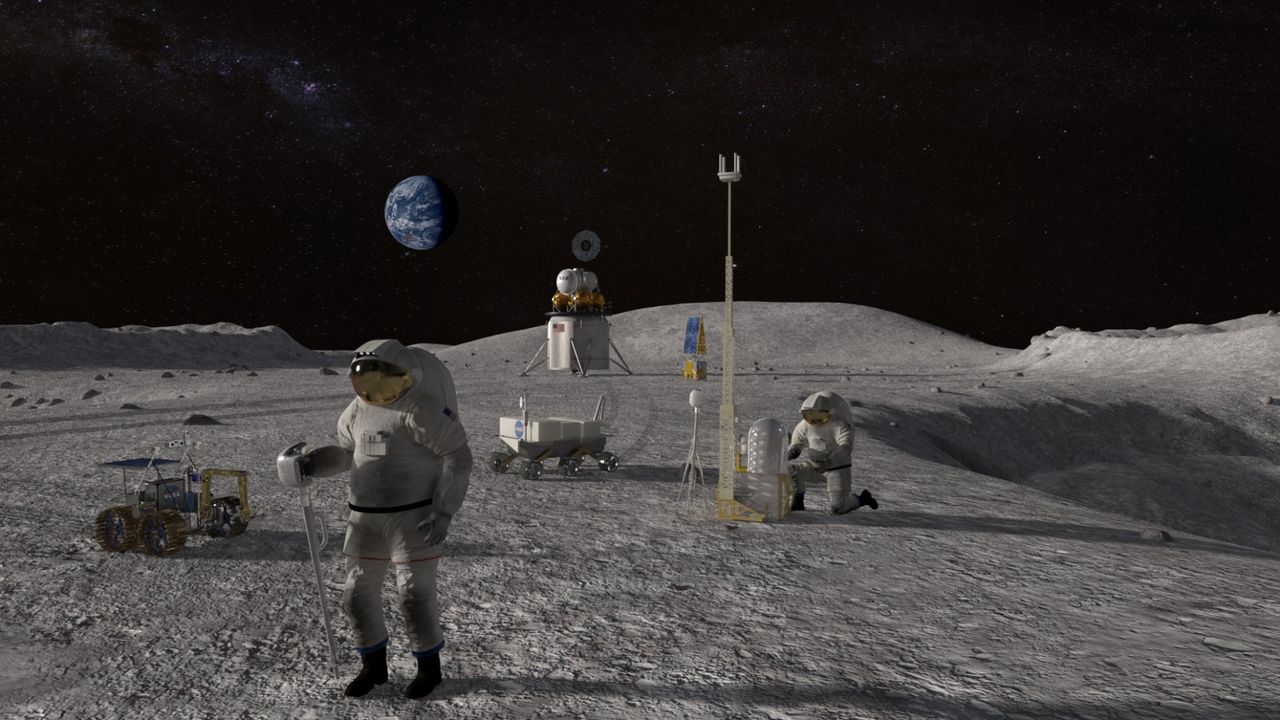Science
NASA and Google Develop AI Medical Assistant for Space Missions

NASA is collaborating with Google to develop and test an AI-powered medical assistant intended to support astronauts during long-duration missions. This initiative comes as part of NASA’s commitment to advancing human spaceflight through its Artemis program. The AI system, known as the Crew Medical Officer Digital Assistant (CMO-DA), aims to provide essential medical support for missions that extend beyond low Earth orbit, including journeys to the moon and Mars.
The CMO-DA functions as a Clinical Decision Support System (CDSS), enabling astronauts to autonomously diagnose and treat medical symptoms in environments where communication with Earth is delayed. These delays can reach up to 45 minutes in round-trip light-time for missions to Mars, making real-time consultations impractical.
Google representatives shared insights into the project in a statement on August 8, 2023. They noted that the AI assistant has been trained on extensive spaceflight literature, employing advanced natural language processing and machine learning techniques. This allows the system to deliver real-time analyses of crew health and performance effectively. Early results suggest that the AI may provide reliable diagnoses based on reported symptoms.
Testing and Development
NASA and Google are currently collaborating with medical professionals to further test and refine the CMO-DA model. The goal is to ensure that the assistant can deliver accurate medical guidance in the challenging conditions of space travel. This technology could also have implications beyond space missions, potentially aiding medical professionals in remote areas on Earth where access to healthcare is limited.
The development of the AI medical assistant addresses a critical need in deep-space exploration. As astronauts embark on longer missions, having an onboard resource capable of providing medical advice could significantly enhance their safety and well-being. The challenges of space travel necessitate innovative solutions, and this collaboration between NASA and Google represents a promising step forward in astronaut health management.
In addition to its immediate applications for space missions, the research may contribute to broader advancements in telemedicine and healthcare delivery in isolated environments. The potential for AI to assist in medical diagnostics and treatment planning could transform how healthcare is accessed in both space and remote regions on Earth.
With the ongoing push for extended human presence on the moon and Mars, the integration of AI into astronaut support systems signals a new frontier in space exploration. As testing progresses, the insights gleaned from the CMO-DA could pave the way for future innovations that enhance the safety and effectiveness of human spaceflight.
-

 Lifestyle3 months ago
Lifestyle3 months agoLibraries Challenge Rising E-Book Costs Amid Growing Demand
-

 Sports3 months ago
Sports3 months agoTyreek Hill Responds to Tua Tagovailoa’s Comments on Team Dynamics
-

 Sports3 months ago
Sports3 months agoLiverpool Secures Agreement to Sign Young Striker Will Wright
-

 Lifestyle3 months ago
Lifestyle3 months agoSave Your Split Tomatoes: Expert Tips for Gardeners
-

 Lifestyle3 months ago
Lifestyle3 months agoPrincess Beatrice’s Daughter Athena Joins Siblings at London Parade
-

 World3 months ago
World3 months agoWinter Storms Lash New South Wales with Snow, Flood Risks
-

 Science3 months ago
Science3 months agoTrump Administration Moves to Repeal Key Climate Regulation
-

 Science2 months ago
Science2 months agoSan Francisco Hosts Unique Contest to Identify “Performative Males”
-

 Business3 months ago
Business3 months agoSoFi Technologies Shares Slip 2% Following Insider Stock Sale
-

 Science3 months ago
Science3 months agoNew Tool Reveals Link Between Horse Coat Condition and Parasites
-

 Sports3 months ago
Sports3 months agoElon Musk Sculpture Travels From Utah to Yosemite National Park
-

 Science3 months ago
Science3 months agoNew Study Confirms Humans Transported Stonehenge Bluestones









